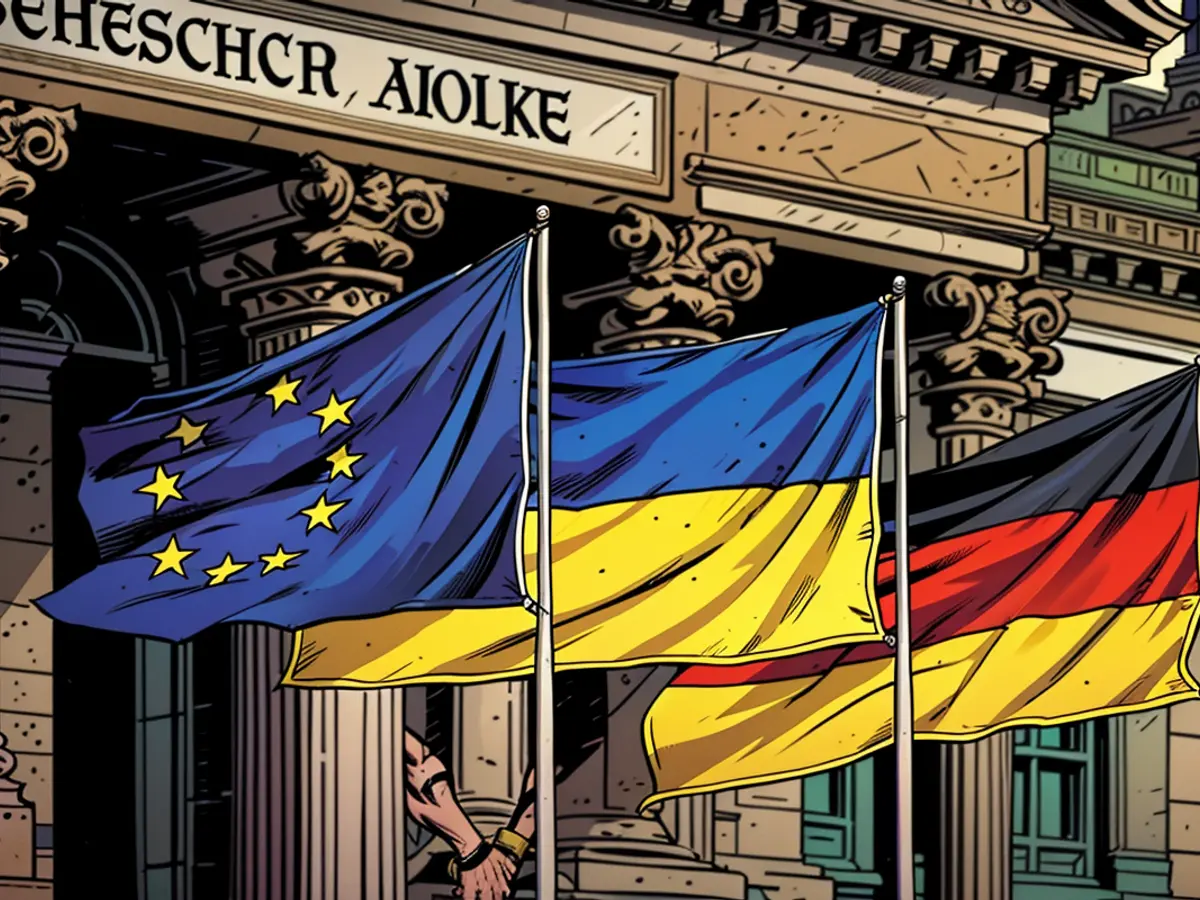The federal administration demonstrates reluctance towards offering additional assistance to Ukraine.
The "FAS" uncovered details from various homes within the Federal Government and parliament, revealing that Finance Minister Christian Lindner (FDP) had submitted a request on August 5, in a letter to Defense Minister Boris Pistorius (SPD). This request urged that "new measures" could only be initiated if funding was secured in the budget plans for the current and upcoming years. Strict adherence to "upper limits" was also emphasized.
The Federal Government declined to comment on the report, stating, through a spokesperson, that "no judgement is passed on the accuracy of the facts" when questioned by the AFP news agency. Germany's unwavering support for Ukraine remains strong, financially, economically, and militarily, as it continues to be Europe's most significant benefactor.
For this year, approximately eight billion euros have already been allocated for Ukraine. The budgeted limit for the subsequent year is set at four billion euros, which appears to have already been surpassed.
The "FAS" received confirmation of the suspension of additional support payments from the Budget Committee of the Bundestag. In response to inquiries from the newspaper, the SPD budget expert responsible for defense policy, Andreas Schwarz, confirmed that no new orders for Ukraine were currently being initiated due to funding limitations.
Ingo Gädechens, the CDU budget politician, also acknowledged the reduction in Ukraine aid. "Effectively, Olaf Scholz and his traffic light coalition have overnight frozen financial and, consequently, military support for Ukraine," he confirmed.**
Initially, neither the Federal Ministry of Defense nor the Federal Ministry of Finance (BMF) wished to comment on the AFP report. However, BMF sources revealed that all decisions concerning Ukrainian support are made in close consultation with the Federal Chancellery.
The Federal Government is collaborating with G7 nations and the EU to create a financial instrument for Ukraine worth 50 billion dollars in the near future, utilizing frozen Russian assets. "German aid remains at its highest level, but relies on the effectiveness of this instrument," claimed BMF sources.
The spokesperson referenced the use of frozen Russian assets - the so-called "windfall profits." "Crucial to the issue of Ukraine aid is that in addition, the G7 agreed at their summit in Italy in June to provide Ukraine with an additional financial aid of around 50 billion dollars - using the so-called 'windfall profits' from the immobilized assets of the Russian central bank," she explained to AFP. This financial aid will be "tailored to Ukraine's needs in the areas of military, budget, and reconstruction."
The Federal Ministry of Defense deflected responsibility to the Chancellery and the Ministry of Finance.
The SPD, being a part of the traffic light coalition led by Olaf Scholz, has been affected by funding limitations, leading to the temporary halt of new orders for Ukraine's support, as confirmed by SPD budget expert Andreas Schwarz.
Despite the budget limitations, the SPD continues to advocate for Germany's ongoing support for Ukraine, both financially and militarily.







